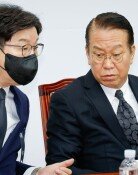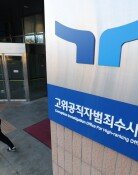Foreign Patent Lawsuits Target Korea
Foreign Patent Lawsuits Target Korea
Posted December. 14, 2005 06:15,
Korean companies are paying far more in patent expenses (compensation fees and royalties for disputes) now than in the past because large foreign companies are waging an intellectual property rights war against them.
The Korea Electronics Association (KEA) says that small- and medium-sized domestic electronics companies paid $392 million in patent expenses in 2001, $426 million in 2002, and $530 million last year.
Patent-related expenditures of Korean flagship companies such as cell phone, MP3 player, monitor, and set-top box makers rose from $163 million in 2001 to $280 million last year.
Conglomerates are not exempt from this intellectual property battle. Last year, Samsung Electronics spent 1.5 trillion won in royalty and dispute settlement costs. A vice president of the Korean electronics giant, Yoon Jong-yong, predicted, Those expenses will increase to some 2.5 trillion won by 2010.
Attorney Steven Becker from the U.S. law firm McDermott recently participated in a patent forum in Korea and said, Intangible assets of global IT companies in market value grew from 32 percent in 1982 to 68 percent in 1992, and to 85 percent in 1998, and added, Corporate values are determined by intangible intellectual property rights such as patent and trademark rights.
Yet, made in Koreas are still very fragile in the war over intellectual property. Last year alone, the technical trade deficit from domestic companies failure to secure basic patents and patent families amounted to $2.42 billion.
Moreover, various international patent disputes are adding to the pricy consequences.
Becker said, Korean firms are good prey for the U.S. market. Big businesses around the world collect royalty and compensation damages from patent lawsuits and even attempt to drive Korean companies out of the market.
Korean companies are in a worse situation as patent infringement damages levied by U.S. courts are rising, and the rate of plaintiffs winning patent infringement cases has surged. The likelihood of patent holders in the U.S. winning cases reached 70 percent last year, up from 30 percent in 1982 before the establishment of the Federal Patent Court.
Jin-Suk Huh wiseweb@donga.com jameshuh@donga.com







